Audio available in app
Autism may involve a hyperfunctioning of certain brain regions from "summary" of Phantoms in the Brain by V. S. Ramachandran
Ramachandran suggests that autism could potentially be linked to an overactivity in specific regions of the brain. This idea challenges the traditional view that autism is solely caused by deficits or abnormalities in brain function. Instead, Ramachandran proposes that certain areas of the brain in individuals with autism may actually be functioning at a heightened level, leading to the unique behaviors and characteristics associated with the disorder. By considering the possibility of hyperfunctioning brain regions in autism, Ramachandran opens up new avenues for understanding the condition. He suggests that this hyperactivity may result in an increased sensitivity to sensory stimuli, explaining why individuals with autism often experience sensory overload and have difficulty processing information in their environment. This heightened activity could also contribute to the intense focus and attention to detail that is commonly seen in people with autism. Furthermore, Ramachandran's hypothesis sheds light on the social and communication difficulties experienced by individuals with autism. He suggests that the hyperfunctioning of certain brain regions may lead to an imbalance in neural processing, affecting the ability to interpret social cues and engage in typical social interactions. This could explain why individuals with autism often struggle with understanding emotions, interpreting facial expressions, and engaging in reciprocal communication.- Ramachandran's concept of hyperfunctioning brain regions in autism challenges conventional thinking about the condition and offers a fresh perspective on the underlying neural mechanisms at play. By exploring the idea of increased brain activity in certain regions, we may be able to gain a deeper understanding of the complexities of autism and develop more effective interventions and treatments for individuals with the disorder.


